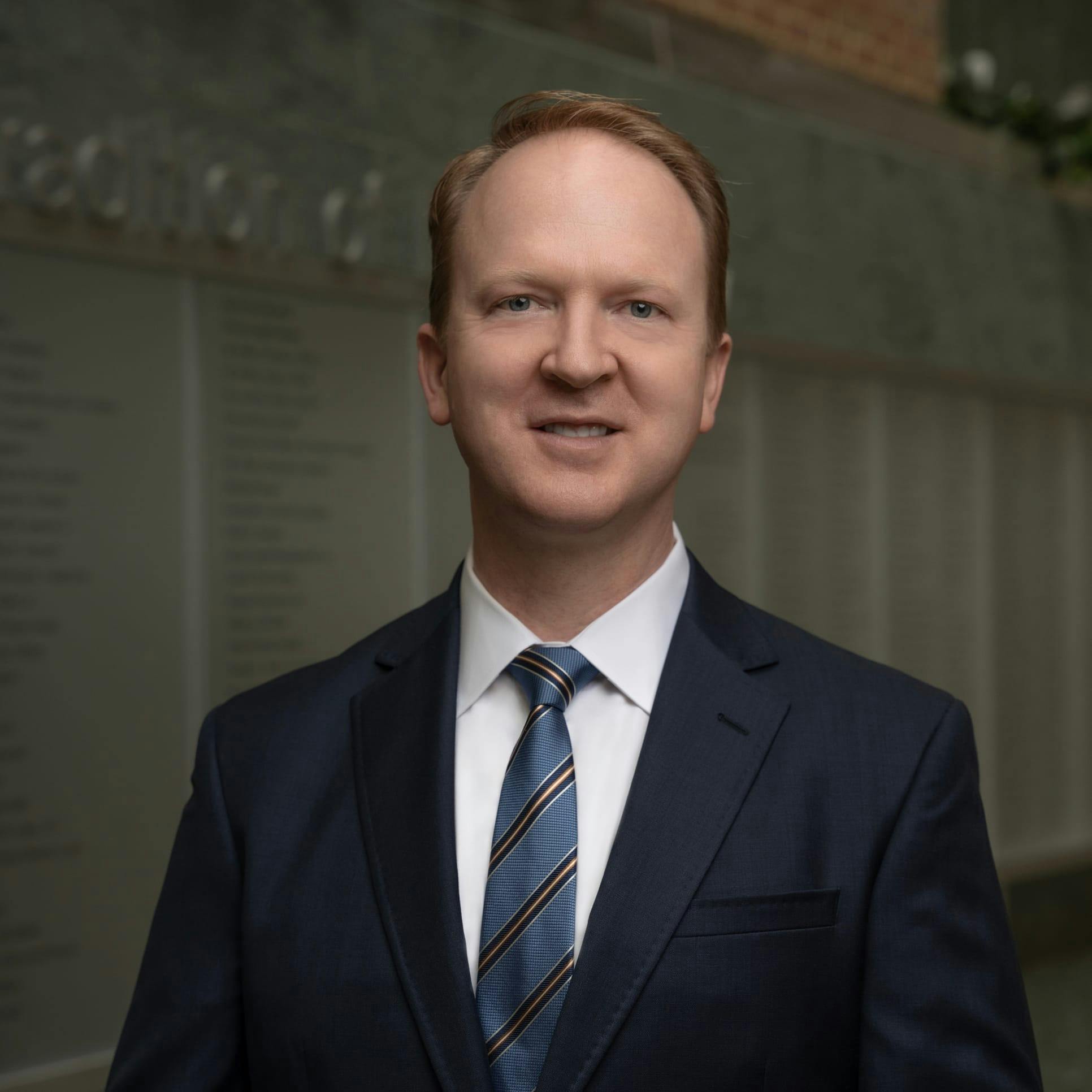A neurosurgeon is a highly trained medical professional specializing in the surgical treatment of disorders affecting the nervous system, which includes the brain, spine, and peripheral nerves that travel into the arms, legs, and other parts of the body.
The Role of a Neurosurgeon


What is a Neurosurgeon? and What Does a Neurosurgeon Do?
These experts employ intricate surgical techniques to address conditions such as brain tumors, spinal disorders, and neurological trauma, aiming to restore or improve the function of the nervous system and enhance the overall well-being of their patients. Our neurosurgeons at Virginia Neurosurgeons in Arlington have all completed extensive training at some of the world’s most prestigious institutions and are board-certified to ensure the highest quality neurosurgical care.
How is a Neurosurgeon different from a Neurologist and Ortho Spine Specialist?
In the realm of neurosurgical and spine care, understanding the distinctions between a neurosurgeon, a neurologist, and an orthopedic spine specialist is crucial for patients seeking appropriate medical guidance and intervention.
Neurologist:
A neurologist is a medical doctor who specializes in diagnosing and treating disorders of the nervous system but is not a surgeon. This includes the brain, spinal cord, and peripheral nerves. Neurologists evaluate patients with various neurological symptoms, such as headaches, seizures, movement disorders, and sensory issues. They use a combination of clinical examination and diagnostic tests, like imaging studies and electroencephalograms (EEGs), to understand and manage conditions affecting the nervous system. While neurologists primarily focus on non-surgical treatments, they often collaborate with neurosurgeons for cases requiring surgical intervention.
Orthopedic Spine Specialist:
An Orthopedic Spine Specialist, or Ortho Spine Specialist, is a medical doctor who specializes in the musculoskeletal system, with a specific focus on spine-related conditions. These specialists are orthopedic surgeons who have undergone additional training to become experts in treating disorders of the spine, including the vertebrae, discs, and associated structures. Ortho Spine Specialists diagnose and manage a wide range of spine issues, such as herniated discs, spinal deformities, and degenerative conditions. Their expertise includes both surgical and non-surgical approaches, and they work closely with patients to provide personalized treatment plans aimed at improving spine health and function.

What Sets Neurosurgeons Apart from Orthopedic Spine Specialists?
Neurosurgeons have the longest residency training program of any medical specialty, requiring seven years of specialized training after graduating from medical school. As such, neurosurgeons have dedicated themselves to mastery of the entire nervous system, including the spine and spinal cord, spinal and peripheral nerves, and the brain. While neurosurgeons can operate anywhere in and around the brain, spine, and peripheral nerves, the majority of operations a neurosurgeon performs are focused on the spine. Aside from performing surgery for seven years, neurosurgery residency involves formal training in neurology, neuroradiology, intensive care, and research. No other specialty involved in spine care offers equivalent depth, proficiency, and expertise.
While both neurosurgeons and orthopedic spine surgeons deal with the surgical management of spinal disorders, there are significant differences in the training programs that are important for patients to know. Neurosurgeons focus exclusively on spine, brain, and peripheral nerve disorders while orthopedic surgeons provide a valuable surgery on orthopedic issues such those including hips, knees, shoulders, etc.
Neurosurgeons Have Key Distinctions:
- Extensive Residency Training: Neurosurgeons undergo one of the longest and most rigorous residency programs, spanning seven years, which includes comprehensive training in various aspects of neurosurgery, including spine, brain, and peripheral nerve disorders. The requirement for graduating neurosurgeons is to have performed a minimum of 300 spinal surgeries, with the average neurosurgeon having performed 496 spinal surgeries at the completion of residency. Orthopedic surgery residency covers general orthopedic issues (e.g., hips, knees, shoulders, etc.) and has a required case minimum of 15 spine surgeries, with the average graduating orthopedic surgeon having performed 83 spine surgeries. Given the limited exposure to spine surgery during orthopedic residency training, orthopedic surgeons typically require a spine surgery fellowship to gain greater comfort working around the delicate nerves of the spine.
- Focus on Neurological System: Neurosurgeons specialize in treating conditions related to the neurological system, encompassing the brain, spine, and peripheral nerves, providing unique expertise in intricate surgical interventions for these areas.
- Exclusive Specialization: Neurosurgeons exclusively focus on neurological disorders, differentiating them from orthopedic surgeons who may address a broader range of musculoskeletal issues.
- High Surgical Volume Requirements: Neurosurgeons often have a minimum requirement of 300 spinal surgeries during their training, ensuring a wealth of hands-on experience in complex spine procedures.
- Advanced Training in Brain Surgery: Neurosurgeons receive specialized training in brain surgery, enabling them to address a wide array of conditions affecting the central nervous system.
- Management of Peripheral Nerves: Neurosurgeons possess expertise in managing disorders of peripheral nerves, offering a comprehensive approach to neurological care beyond the spinal and cranial regions.
- Multidisciplinary Collaboration: Neurosurgeons often collaborate with other medical specialists, fostering a multidisciplinary approach to patient care, especially when dealing with complex neurological conditions.
- Evidence-Based, Holistic Approach: Neurosurgeons adopt an evidence-based and holistic approach to patient care, combining the latest scientific research and state-of-the-art technology with a comprehensive understanding of the patient's overall health to confirm a diagnosis. This approach ensures that treatment plans are not only effective for the neurological condition but also tailored to the patient's unique medical circumstances.
- Experts in Nerve Manipulation: Neurosurgeons are experts in the manipulation and surgical intervention of nerves, possessing the skills to delicately navigate the intricacies of the nervous system. This level of expertise is crucial when addressing conditions that involve precise nerve manipulation, ensuring optimal outcomes for patients.
- Broader Skill Set: While neurosurgeons have a primary focus on the neurological system, their training equips them with a broader skill set that extends beyond the spine. This includes expertise in cranial surgery, enabling them to address diverse conditions affecting the brain and peripheral nerves and providing patients with comprehensive neurological care. Essentially, a neurosurgeon can do the same surgeries as an orthopedic surgeon, along with a host of additional procedures required for surgical neurological treatments.
- Experts in Complex Joint/Bone Workings of the Spine: Neurosurgeons excel in understanding the complex workings of joints and bones within the spine. This expertise is particularly valuable when dealing with intricate spine surgeries, where a deep understanding of the musculoskeletal system is essential for successful interventions and optimal patient outcomes.

Why Choose a Neurosurgeon?
When patients are dealing with problems of the spine, they often first see a primary care physician but then face the significant hurdle of determining where to turn next. Many types of doctors and medical practitioners deal with spinal disorders, including neurosurgeons, physiatrists, neurologists, pain management specialists, chiropractors, orthopedic spine surgeons, and physical therapists. Neurosurgeons offer patients the most comprehensive expertise in the diagnostic evaluation and subsequent treatment of these issues. They can oversee everything involved with spine care, from the initial neurological examination and clinical diagnosis to obtaining the appropriate diagnostic tests, to overseeing both conservative treatment programs and, if necessary, performing the definitive surgery. Virginia Neurosurgeons in Arlington was established in 2001, and we have become well-established leaders in the field of effective neurosurgical treatments.
Balanced Treatment Approaches that Address the Whole Picture
At Virginia Neurosurgeons, we are dedicated to doing everything possible to help patients get excellent outcomes. Part of what makes this attainable is being experts in the latest neurological research, procedures, treatment options, and state-of-the-art equipment for diagnosis and surgery, as well as employing a team approach with other specialists. We are interested in the whole picture for our patients, so we employ multiple methods and approaches, or “modalities,” with the goal of preserving or restoring function and quality of life for our patients. This multimodality approach includes:
Surgery:
Employing various surgical interventions, including minimally invasive procedures, decompressions, fusion operations, and motion-preserving alternatives.
Conservative Management:
Initiating conservative treatment plans, emphasizing non-surgical interventions when appropriate, such as physical therapy, medications, and lifestyle modifications.
Specialized Diagnostic Tests:
We employ specialized tests like electromyography, nerve conduction studies, and diagnostic injections for accurate diagnosis and treatment planning.
Collaboration with Other Physicians:
We often collaborate with primary care physicians and other specialists to ensure comprehensive care for patients with complex neurological or spinal conditions.
Microscopic Surgical Techniques:
Uniquely trained in microscopic surgical techniques, our neurosurgeons utilize advanced technology to perform precise surgeries, minimizing risks and optimizing outcomes.
Motion-Preserving Alternatives:
For conditions like degenerative disc disease, our neurosurgeons offer motion-preserving alternatives, including artificial disc replacement and laminoplasty.
Management of Spinal Trauma:
We are well-equipped to handle spinal trauma, including fractures and injuries, providing timely and effective interventions.
Neurological Examination:
We conduct thorough neurological examinations to evaluate symptoms, identify underlying issues, and tailor treatment plans accordingly.
Should I See a Neurosurgeon for Back Pain?
Neurosurgeons are uniquely qualified spinal specialists with comprehensive training to handle all major aspects of spine surgery. This includes addressing degenerative conditions like herniated discs, spinal stenosis, spondylolisthesis, scoliosis, and back and neck pain, as well as managing oncological issues such as primary and metastatic cancer affecting the spine, spinal cord tumors, and nerve tumors. Additionally, neurosurgeons are adept at handling traumatic cases involving high-impact spine fractures and low-impact osteoporotic fractures. They possess the necessary neurological diagnostic skills to evaluate neuro-imaging (such as MRIs and CT scans) accurately, enabling them to pinpoint the exact problem. With a surgical skill set that covers both minimally invasive and traditional approaches, neurosurgeons can provide a range of feasible options to patients. The extensive training of neurosurgeons in spinal surgery equips them to handle potential complications related to both surgical and non-surgical treatments, making them the most proficient specialists in spinal care.

Choose a Board-Certified Neurosurgeon Only
Only spine surgeons Board-Certified by the American Board of Neurological Surgery (ABNS) are neurosurgeons. Here at Virginia Neurosurgeons, all of our surgeons are board-certified by the ABNS and members of the American Association of Neurological Surgeons, an organization dedicated to advancing the specialty of neurological surgery in order to promote the highest quality of patient care.
Why Choose a Spine Specialist?
When faced with spine-related issues, individuals often seek initial care from primary care physicians or emergency room doctors. These healthcare professionals frequently enlist the expertise of spine specialists to manage the patient's condition effectively. Understanding that pain can have various spinal and non-spinal causes, neurosurgical spine specialists bring experience to initiate the right diagnostic evaluation and commence a conservative treatment plan. The accurate diagnosis of spinal conditions involves a thorough neurological examination, followed by spine imaging (such as x-rays, CT scans, and MRI scans). In some cases, more specialized tests like electromyography, nerve conduction studies, or diagnostic injections may be required.
Key Points:
- Specialized Expertise: Spine specialists, particularly neurosurgical spine specialists, possess specialized knowledge and experience in managing a wide range of spinal conditions.
- Comprehensive Diagnostic Evaluation: These specialists conduct thorough neurological examinations and utilize advanced imaging techniques to accurately diagnose spinal issues.
- Conservative Treatment Approach: Spine specialists initiate conservative treatment plans, emphasizing non-surgical interventions when appropriate.
- Collaboration with Other Physicians: Primary care and emergency room physicians often collaborate with spine specialists to ensure comprehensive care for patients.
- Utilization of Specialized Tests: In addition to standard imaging, spine specialists may employ specialized tests like electromyography, nerve conduction studies, or diagnostic injections for a precise diagnosis.


Choose only the best Spine Surgeon for Your Procedure
It is imperative that the spine specialist who is performing the evaluation and providing treatment recommendations has deep expertise in the neurological examination, as well as the knowledge and training to order the correct tests and interpret the results. Our Northern Virginia neurosurgeons are uniquely qualified in these aspects of spine care.
Which is Better, Neurosurgeons or Spine Surgeons?
Initial conservative treatments for spinal disorders often include medication management, physical therapy, and sometimes therapeutic injections in and around the spine. Neurosurgeons are spine specialists who have cultivated a comprehensive team of medical professionals, including physical therapists, neurologists, and pain management doctors so that patients can obtain the care they need in a timely fashion. Because neurosurgeons are uniquely trained in microscopic surgical techniques, which differentiates them from other spine surgeons (such as orthopedic surgeons), they are able to offer patients the full spectrum of surgical treatment options while minimizing the risk of potential surgical complications.
Guiding People Through The Noise of the Medical World Schedule A Consultation
What Does a Neurosurgeon Do for Back Pain?
If patients do not achieve satisfactory improvement in their pain or neurological symptoms with non-surgical treatments, neurosurgeons are the spine specialists who are best equipped with the next tier of treatment options, which often include surgery.
Neurosurgeons have comprehensive training in all major aspects of spine surgery and the ability to offer patients surgery targeted to their particular need:
- Minimally Invasive Decompressions: Neurosurgeons are skilled in performing minimally invasive decompression procedures to alleviate back pain, reducing disruption to surrounding tissues and promoting faster recovery.
- Instrumented Fusion Operations: For severe cases, neurosurgeons may recommend instrumented fusion operations to stabilize the spine, particularly in conditions like spinal instability or degenerative disc disease.
- Motion-Preserving Non-Fusion Alternatives: Neurosurgeons offer alternatives like artificial disc replacement and laminoplasty, focusing on preserving spinal motion while addressing the underlying causes of back pain.
- Microscopic Surgical Techniques: Uniquely trained in microscopic surgical techniques, neurosurgeons can perform precise surgeries, minimizing the risk of potential complications and ensuring optimal outcomes.
- Full Spectrum of Surgical Treatment Options: Neurosurgeons provide a comprehensive range of surgical options for back pain, tailoring the approach to the specific needs of each patient.
In rare circumstances, a small number of patients do not respond well to conservative treatments and may not be good candidates for spinal surgery. Hope should not be lost for these patients. Neurosurgeons, in conjunction with other spine specialists, are equipped to investigate whether neuromodulation, sometimes referred to as spinal cord stimulation or DRG stimulation, may help a patient’s pain. Neuromodulation can be quite effective for certain chronic pain syndromes. Patients should speak with their spine specialist to learn whether they may be a candidate.
Working with a neurosurgeon gives patients the confidence of having a spine specialist who is an expert in every phase of their care. Here at Virginia Neurosurgeons in Arlington, all of our surgeons are members of the American Association of Neurological Surgeons, an organization dedicated to advancing the specialty of neurological surgery in order to promote the highest quality of patient care.
Why Choose a Neck and Back Pain Specialist?
Back and neck pain are common conditions affecting the majority of people at some point during their lifetime. Approximately 80 percent of adults experience painful spinal conditions, which is why low back and neck pain are among the most frequent reasons for missed days of work, ER visits, and job-related disability.

Choosing the best Neck and Back Pain Specialist for Your Needs
Pain management doctors can diagnose the underlying cause of a patient’s symptoms and offer targeted treatment programs. While most issues are related to minor musculoskeletal sprains, sometimes there are more serious underlying conditions involved. The spinal column (vertebral bodies, intervertebral discs, facet joints, and spinal ligaments) may be degenerated or injured.
Degenerative diagnoses such as the following may also be the culprit:
- Herniated Discs
- Bulging Discs
- Spinal Stenosis
- Spondylolisthesis
- Facet Disease
- Degenerative Disc Disease
- Spondylosis
- Osteophytes
If the spinal nerves are affected, the pain may include symptoms such as:
- Sciatica
- Radiculopathy (radiating arm pain, radiating leg pain)
- Nerve pain
- Numbness
- Tingling
- Muscle weakness
When the spinal cord is involved, patients may have a condition known as myelopathy, which means dysfunction of the spinal cord. Once nerve damage occurs, it may be permanent and irreversible, so it is important to obtain a diagnosis from a reputable back pain specialist, such as an expert at Virginia Neurosurgeons, to receive treatment before irreversible damage occurs.

Seeking a Back Pain Doctor with the Right Training
It is also important for your neck and back pain specialist to be trained to recognize which spinal conditions are fairly routine and can be successfully treated with standard conservative measures in the outpatient setting, as well as which conditions are more serious and require urgent evaluation and treatment. Sometimes, this may require inpatient admission to a hospital. Rarely, a patient’s spinal condition may require urgent surgery. Emergency situations include conditions such as:
- Cauda equina syndrome,
- Spine infections, including osteomyelitis and discitis,
- Cancer of the spine (both primary and metastatic) resulting in spinal cord compression,
- Spinal trauma resulting in unstable spine fractures or epidural hematomas.
While most spinal conditions can be successfully managed without surgery, VA Neurosurgeons in Arlington are the back and neck pain specialists who are best equipped to provide comprehensive care and determine the next steps in treatment. By working in both outpatient clinics and the inpatient setting, we are able to provide expedited diagnostic evaluation and treatment.

What Happens if I Need Surgery in Northern Virginia?
If a patient requires urgent spine surgery, neurosurgeons are among the only spine specialists who can provide this service. Because clinics like ours have the most extensive surgical training of any neck and back pain specialist and also have specialized skills in microscopic surgery, they are also the best prepared to minimize risk and successfully deal with potential complications.
When choosing a neck and back pain specialist, having a neurosurgeon as your partner will give you peace of mind of knowing you are working with the best. Here at Virginia Neurosurgeons, all of our surgeons are members of the American Association of Neurological Surgeons, an organization dedicated to advancing the specialty of neurological surgery in order to promote the highest quality of patient care.
